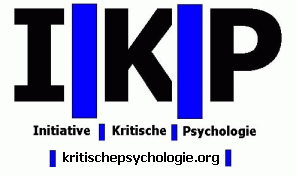---------An Inadequate Foundation for Mental Health Treatment
There are other models of mental health which provide foundations which approach psychiatric disorders and mental health from a totally different angle, though not as popular, they are equally, or even more-viable, realistic, holistic and productive, than the medical model."
Labeling and drugging is a convenient way of treating mental health disorders,
and is profitable for insurance and pharmaceutical companies."
is sickness behavior and antidepressants are analgesic
Bruce G Charlton MD
Prolonged sickness behavior therefore creates a nihilistic mental state where life seems devoid of gratifying possibilities (ie. pessimism) because emotional feedback registers a physiological state that is locked-into sickness behavior, and unresponsive to the usual appetites (ie. a state of anhedonia). Another factor is that the sufferer from SB does not know that they are sick, and often interpret their lack of energy, lack of motivation, and poor concentration as a moral failure - leading to feeling of guilt and unworthiness. Given the nature of this subjective mental landscape, the high rate of suicide in MDD is unsurprising.
To put malaise at the core of the depressive syndrome may seem a radical inversion of the usually accepted causal interpretation, since symptoms of malaise have traditionally been interpreted as secondary to the mood change in MDD. Traditionally (eg. in DSM-IV) it is supposed that depressed people complain of tiredness and aching limbs because they are miserable - whereas the malaise theory suggest that they are miserable because they are tired and have aching limbs. Eventually chronic misery imposes itself on incoming perceptions, these associations are learned, and the depressive cognitive style becomes habitual so it may persist even after resolution of the hyper-immune state that originally caused SB."
Metabolic depression in hibernation and major depression: an explanatory theory and an animal model of depression.
Tsiouris JA.
George A. Jervis Clinic, NYS Institute for Basic Research in Developmental Disabilities, Staten Island, NY 10314, USA. john.tsiouris@omr.state.ny.us
"Antidepressants are assumed to work on the specific neurobiology of depressive disorders according to a "disease-centred" model of drug action. However, little evidence supports this idea. An alternative, "drug-centred," model suggests that psychotropic drugs create abnormal states that may coincidentally relieve symptoms."
Dr Rufus May argues that, rather than trying to cure our sadness with pills, we must accept it as part of life. Only then can we start to change it
"We have also set up a network of public meetings that explore different approaches to mental well-being. What we have discovered is that people find a vast range of things helpful in dealing with distress, from diet and herbal medicine, through meditation and spiritual healing, to dance and artistic expression. "

2 Kommentare:
Good thoughts you have shared in this blog on medical model and mental illness. I really like it.
Don't you get the sensations that a lot of the doctors nowadays are just throwing pills at you and see what happens?
prozac linked to birth defects
Kommentar veröffentlichen